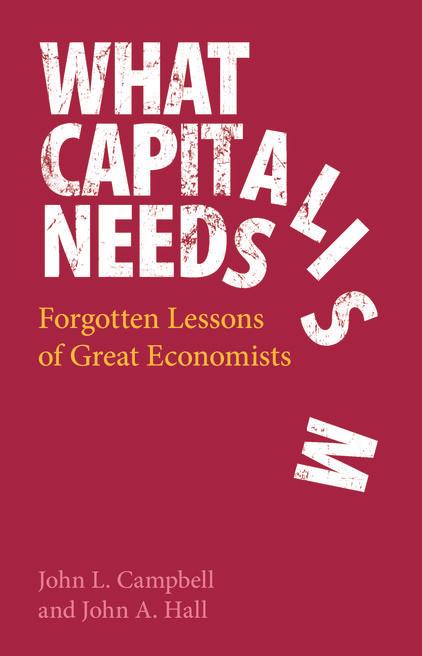
4 minute read
Sociology
Antiracist Discourse
Theory and History of a Macromovement
Teun A. van Dijk
Universitat Pompeu Fabra, Barcelona
Description
Antiracism is a global and historical social movement of resistance and solidarity, yet there have been relatively few books focusing on it as a subject in its own right. After his earlier books on racist discourse, Teun A. van Dijk provides a theory of antiracism along with a history of discourse against slavery, racism and antisemitism. He first develops a multidisciplinary theory of antiracism, highlighting especially the role of discourse and cognition as forms of resistance and solidarity. He then covers the history of antiracist discourse, including antislavery and abolition discourse between the 16th and 19th century, antiracist discourse by white and black authors until the Civil Rights Movement and Black Lives Matter, and Jewish critical analysis of antisemitic ideas and discourse since the early 19th century. It is essential reading for anyone interested in how racism and antisemitism have been critically analysed and resisted in antislavery and antiracist discourse.
Key Features
• Provides for the first time a multidisciplinary theory of antiracism and a history of discourse against slavery, racism and antisemitism in Europe and the USA • Highlights how antiracism can be defined as a global and historical social movement of resistance and solidarity • Gives examples of how discourse is a major form of antiracist resistance and solidarity
Contents
1. Introduction; 2. Theoretical framework; 3. First writings against slavery; 4. Abolitionist discourse of the Quakers; 5. Black resistance against slavery and discrimination; 6. The civil rights movement; 7. Jewish resistance against antisemitism; 8. Postwar antiracist discourse from UNESCO to Black Lives Matter; 9. Conclusions.
Additional Information
Level: Academic researchers, graduate students
April 2021 978-1-108-95607-9 Cambridge Core £90.00 / US$140.00
What Capitalism Needs
Forgotten Lessons of Great Economists
John L. Campbell
Dartmouth College
and John A. Hall
McGill University, Montréal
Description
From unemployment to Brexit to climate change, capitalism is in trouble and ill-prepared to cope with the challenges of the coming decades. How did we get here? While contemporary economists and policymakers tend to ignore the political and social dimensions of capitalism, some of the great economists of the past – Adam Smith, Friedrich List, John Maynard Keynes, Joseph Schumpeter, Karl Polanyi and Albert Hirschman – did not make the same mistake. Leveraging their insights, sociologists John L. Campbell and John A. Hall trace the historical development of capitalism as a social, political, and economic system throughout the twentieth and early twenty-first centuries. They draw comparisons across eras and around the globe to show that there is no inevitable logic of capitalism. Rather, capitalism’s performance depends on the strength of nation-states, the social cohesion of capitalist societies, and the stability of the international system – three things that are in short supply today.

Key Features
• Recovers the forgotten insights of great economists of the past • Traces the historical development of capitalism as a social, political and economic system throughout the twentieth and early twenty-first centuries • Draws lessons from comparisons across the globe and across different eras • Explains why capitalism today is failing
Contents
1. Sociology from economics; 2. Phoenix from the ashes; 3. Storm clouds; 4. Nationalism and social cohesion; 5. State failure; 6. What next?
Additional Information
Level: General readers, undergraduate students, academic researchers
September 2021 216 x 138 mm 300pp 978-1-108-48782-5 Hardback £20.00 / US$24.95
Why Gender?
Edited by Jude Browne
University of Cambridge
Description
Why is a focus on gender so important for interpreting the world in which we live? Sixteen world-famous scholars have been brought together to address this question from their respective fields: Political Theory, Philosophy, Medical Anthropology, Law, Geography, Islamic Studies, Cultural Studies, Philosophy of Science, Literature, Psychoanalysis, History of Art, Education and Economics. The resulting volume covers an extraordinary array of contexts, ranging from rethinking trans* bodies, to traumatized tribal communities, to sexualized violence, to assisted reproductive technologies, to the implications of epigenetics for understanding gender, and yet they are all connected by their focus on the importance of gender as a category of analysis. The publication of this volume celebrates the anniversary of the launch of the Centre for Gender Studies at the University of Cambridge, and features contributions from past and future Diane Middlebrook and Carl Djerassi Visiting Professors to the University.
Key Features
• Provides multidisciplinary accounts on the importance of gender scholarship for understanding the world in which we live • The breadth of disciplinary backgrounds illustrates the ways in which gender analysis is key to a huge number of fields and are presented here in a coherent framework • Collects the writings of world-famous scholars on the subject, as never before

Contents
Introduction: Why Gender? 1. Gender in Translation: Beyond Monolingualism; 2. Gender and The Queer/Trans* Undercommons; 3. Gender and the End of Biological Determinism; 4. Gender, Sexuality, Race and Colonialism; 5. Posthuman Feminism and Gender Methodology; 6. Gender, Sperm Troubles and Assisted Reproductive Technologies; 7. Gender, Capital and Care; 8. Aspiration Management: Gender, Race, Class and the Child as Waste; 9. Gender, Race and American National Identity: The First Black First Family; 10. Gender and the Collective; 11. Willfulness, Feminism and the Gendering of Will; 12. Gender and Emigré Political Thought: Hannah Arendt and Judith Shklar; 13. Feminism and the Abomination of Violence: Gender Thought and Unthought; 14. Trafficking, Prostitution and Inequality: The Centrality of Gender; 15. Gender, Revenge, Mutation, and War; 16. Bed Peace and Gender Abnorms.
Additional Information
Level: Graduate students, academic researchers
October 2021 229 x 152 mm c.320pp 978-1-108-83337-0 Hardback £64.99 / US$84.99










